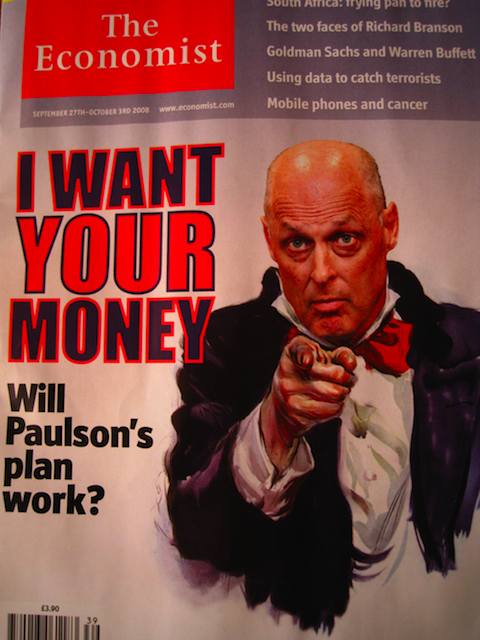From Paul Krugman’s NYT column…
Dishonesty is nothing new in politics. I spent much of 2000 — my first year at The Times — trying to alert readers to the blatant dishonesty of the Bush campaign’s claims about taxes, spending and Social Security.
But I can’t think of any precedent, at least in America, for the blizzard of lies since the Republican convention. The Bush campaign’s lies in 2000 were artful — you needed some grasp of arithmetic to realize that you were being conned. This year, however, the McCain campaign keeps making assertions that anyone with an Internet connection can disprove in a minute, and repeating these assertions over and over again.
Take the case of the Bridge to Nowhere, which supposedly gives Ms. Palin credentials as a reformer. Well, when campaigning for governor, Ms. Palin didn’t say “no thanks” — she was all for the bridge, even though it had already become a national scandal, insisting that she would “not allow the spinmeisters to turn this project or any other into something that’s so negative.”
Oh, and when she finally did decide to cancel the project, she didn’t righteously reject a handout from Washington: she accepted the handout, but spent it on something else. You see, long before she decided to cancel the bridge, Congress had told Alaska that it could keep the federal money originally earmarked for that project and use it elsewhere.
So the whole story of Ms. Palin’s alleged heroic stand against wasteful spending is fiction…
Krugman’s point — that if people campaign like this then you get some idea of how they’re going to govern. In other words, it’s all about
the relationship between the character of a campaign and that of the administration that follows. Thus, the deceptive and dishonest 2000 Bush-Cheney campaign provided an all-too-revealing preview of things to come. In fact, my early suspicion that we were being misled about the threat from Iraq came from the way the political tactics being used to sell the war resembled the tactics that had earlier been used to sell the Bush tax cuts.
And now the team that hopes to form the next administration is running a campaign that makes Bush-Cheney 2000 look like something out of a civics class. What does that say about how that team would run the country?



